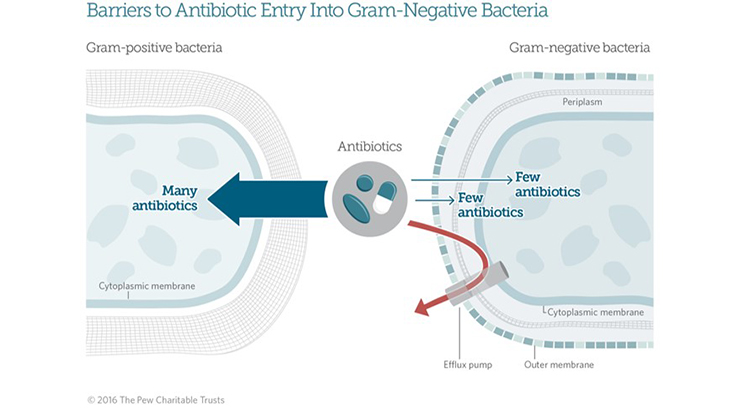Novel Antibiotic Inhibitors
ID# 2020-5095
Technology Summary
Gram-negative bacteria are formidable pathogens because their cell envelope presents an adaptable barrier to environmental and host-mediated challenges. The stress response pathway, controlled by the alternative sigma factor sE, is critical for maintenance of the cell envelope. Because sE is required for the virulence or viability of several Gram-negative pathogens, including Enterobacteriaceae, it may represent a novel target for antibiotic development. No known antibiotics target the sE pathway. Using a patented high-throughput screening system, Penn State Inventors created and defined a novel suite of sE inhibitors that exhibit antibiotic activity and drug-like physical properties. Structure-activity relationship (SAR) studies assessed the importance of different functional groups for approximately 50 analogs. Compounds from the lead series show MIC levels of 1-3 µg/mL in E. coli. No cytotoxicity or CYP450 inhibition was observed. Drugs that emerge from these compounds have the potential to be used as stand-alone treatments or as supplements to traditional antibiotics. Inhibition of this pathway is novel.
Application & Market Utility
There is a critical need for new drugs to treat infections of gram-negative antibiotic-resistant bacteria. The problem is especially urgent in hospital settings where resistance to multiple antibiotics is found in approximately 20% of infections caused by gram-negative Enterobacteriaceae. Gram-negative bacilli are the most common cause of hospital-acquired infection and the most common causes of infection in the ICU. To reduce the incidence of hospital-associated infections caused by antibiotic-resistant bacteria, novel drugs that inhibit pathways not currently targeted by existing antibiotics are needed.
Next Steps
Seeking industry collaboration and licensing opportunities to drive forward clinical validation and use.

